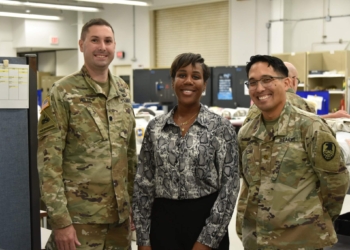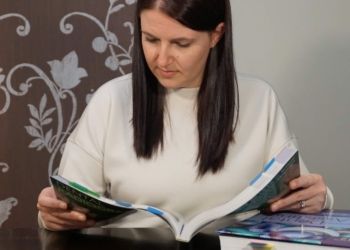Workplace fulfillment is possible when the focus becomes less on titles and more on leading a life of meaningful contribution and taking advantage of real world opportunities.
That might be easier said than done when modern military spouses are constantly seeking opportunities to blend into the local workforce. Finding the next career branch to climb can often mean navigating the workplace jungle up, down and even sideways.
In the overall professional ecosystem, spouses can realize their true potential of diversification by thinking outside the box: Are degrees really required to branch out into new fields? What value should be put on unpaid experiences? What makes the most sense and how does it all fit together?
Volunteering pays off

“Don’t ever discount what you’re learning,” said Abby Himes, a bird keeper aide volunteer at the Smithsonian Zoo. Unknowingly to her at the time, the volunteer work she began on Guam a decade earlier helped distinguish her among a sea of career professionals time and time again.
Originally, Himes volunteered to clear trash, count snails and do whatever was needed to help native wildlife while stationed at Andersen Air Force Base with her husband. Volunteering began as a way to get out of the house and stay busy in the outdoors.
Himes enjoyed her time working with native bird species and sought out similar volunteer positions at their next three duty locations. The opportunities offered through internships and volunteerism eventually equaled unparalleled work experience, which placed her on par with studied experts. She developed her knowledge of biology firsthand rather than in the classroom. Equally as important as a paycheck, she was completely happy with the balance in her life, especially after becoming a new mother.
“I had gusto; I was hungrier,” Himes said about her ability to marry casual interest with her undergraduate degree in psychology. After a few years, she realized that her professional background could be applied to her new path. Plus, permanent change of stations had placed Himes at the doorstep of top facilities around the country.
Equip employers with a vision

Hanah Ehrenreich, founder of Revolutionary Coworking, is also not a stranger to adapting careers to fit the location one finds themselves in. She is a visionary entrepreneur, small business mentor and former military spouse employer in her former position as director of Sustainable Sandhills.
She encourages spouses to have no fear in negotiating the art of employment.
“We need to eliminate turnover rates from the employment discussion,” Ehrenreich proclaimed after discussing the common question faced by spouses interviewing for positions with any teeth. “Proactive visionaries maximizing their potential bring unrivaled energy to organizations. Succession plans offer opportunities to hire within, while vetting candidates to limit vacancies.”
Ehrenreich values innovation and energy over consistency when it comes to choosing candidates. Equipping a potential employer with that type of vision is a powerful tool, she says. Realizing the value of relationships in hiring, Ehrenreich clearly designates when volunteering makes sense.
“Negotiating opportunities for yourself that bring growth is the formula to use when determining a position as a volunteer or intern.”
Ehrenreich adds that vigilance in ensuring the relationship remains mutually beneficial also prevents burnout and a negative experience.
Be malleable and resilient
Nurturing over 200 small business owners from conception to launch is a way to learn the art of the deal. That’s exactly what Jane Harvey did as a small business consultant for the Center for Economic Empowerment and Development in Fayetteville, North Carolina. With a bachelor’s in Spanish and Latin American studies, it was less about paper and more about competency.
“I’ve found military towns are more likely to let you prove yourself, show your grit,” Harvey said about the many doors opened in the Fort Bragg area. Natural aptitude aside, she credits an online certification in business administration earned at no cost as a military spouse, as a personally important tool.
“I’d urge spouses to [take] advantage of what is offered to us even if you’re not sure how it relates to you right now,” she said.
Along with assisting with SEO, business permitting, zoning issues and marketing at CEED, Harvey joined the Fayetteville Young Professionals network. The group focuses on advancement and enrichment through networking. Harvey’s passion project — Jane Loves Local, a blog dedicated to connecting people — gained the attention of Cityview magazine, where she became a contributing writer.
“All military spouses should just keep working on it. Even if nobody knows now, one day they will all see just how amazing you are.”
Post military life, Harvey says the dust has settled and a new path lies ahead. “It really took a year, and I’m glad I didn’t force it.”
With plans to open a mobile, seasonal bakery focused on local ingredients, six years in the entrepreneurially-rich climate at Fort Bragg area left its mark.
The most important takeaway in the military spouse career hunt is often to embrace the ebb and flow of military life. Positions can be negotiated or even created. Taking opportunities when they arise may look different each time. Embrace the unique offerings of each location and never underestimate the value of learning something new.
“Just say, ‘yes,’” Himes said to those opportunities open to spouses while stationed throughout the world.
Read comments






































